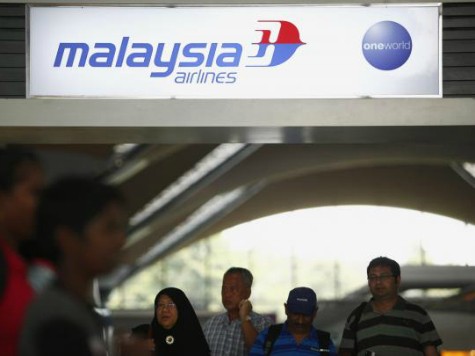
Finding Flight 370 might be the least of Malaysia Airlines’ worries once the missing plane’s ordeal has finally concluded. CNN reports that the airline had been suffering financially for years before the tragedy, and revenue losses and lawsuits threaten to put it out of business for good.
The report notes that Malaysia Airlines’ stock has fallen about 8% since Flight 370 disappeared–a formidable amount for a two-week span–but that such a downturn was already in the making for years. CNN notes that the airline had lost $1.3 billion in the last three years and could require a rescue from the federal government, or even nationalization. Malaysia Airlines’ majority shareholder is already a state investor, though they remain a private company. The company, however, has very strong ties to the tourism industry in Malaysia and, thus, the government.
While Malaysia Airlines was already expecting to continue deeper in the red in 2014, Flight 370’s effects on the company’s income directly hurt its strategy to compete with more successful companies. Reuters reports that the company is already seeing a decline in bookings as the story of Flight 370 keeps potential passengers from flying with them. They had hoped to begin reversing the downward economic trend by lowering prices and enticing new customers, but the missing plane has left them with both cheaper tickets and fewer passengers, to the benefit of competitors like AirAsia and Lion Air, a neighboring Indonesian airline.
That Flight 370 was not the only flight to experience problems since its disappearance is not helping attract travelers, either. On Monday, a Malaysia Airlines flight suffered an electrical failure that forced it to make an emergency landing in Hong Kong, just as Malaysian authorities announced that Flight 370 crashed into the remote southwestern Indian Ocean “beyond a reasonable doubt,” killing everyone on board.
Any conclusive evidence proving all passengers on board the flight died would open the door for an even more serious attack on the airline’s revenues: the inevitable series of class action lawsuits from the relatives of those on the plane. The day after the announcement that all passengers and crew are presumed dead was made, the father of one of the passengers filed a motion for discovery against Malaysia Airlines and Boeing, the plane’s manufacturer, in Cook County, Illinois. The discovery motion also sought information that could lead to more defendants and became the first official legal action against the airline.
Given the tense relationship between the passenger’s relatives–most of whom are Chinese–and the Malaysian government, the airline can expect hundreds of lawsuits claiming wrongful death. In response to the announcement of the plane’s fate, the relatives of Chinese citizens onboard protested before the Malaysian embassy that the government had not done enough to find the plane or give adequate answers as to what happened and why. The protests capped a tense two weeks in which the relatives of those on board criticized the government for keeping them away from the press and not answering their questions.
CNN notes that both the Malaysian government and Malaysia airlines have not responded to requests for comment on the financial situation of the airlines.

COMMENTS
Please let us know if you're having issues with commenting.